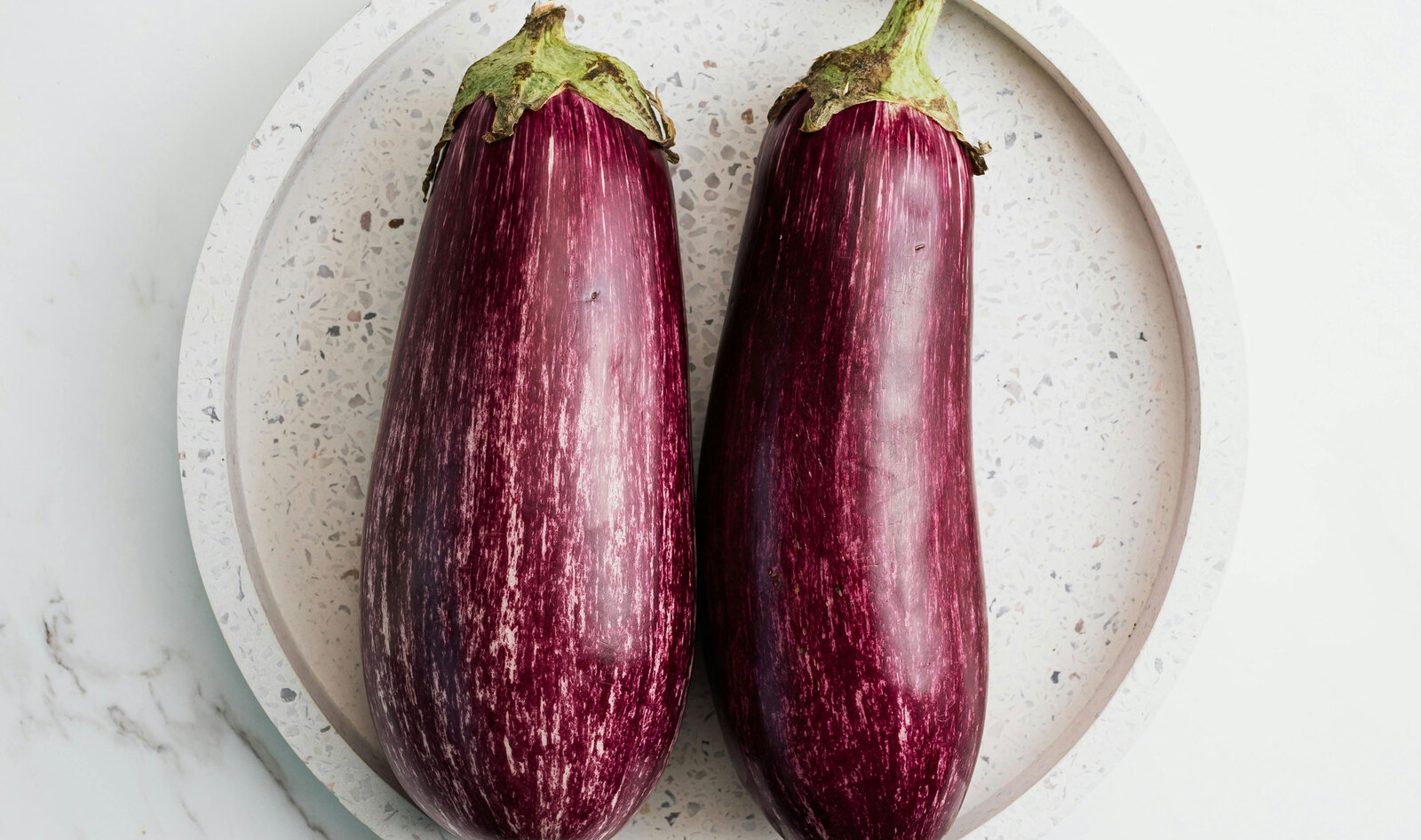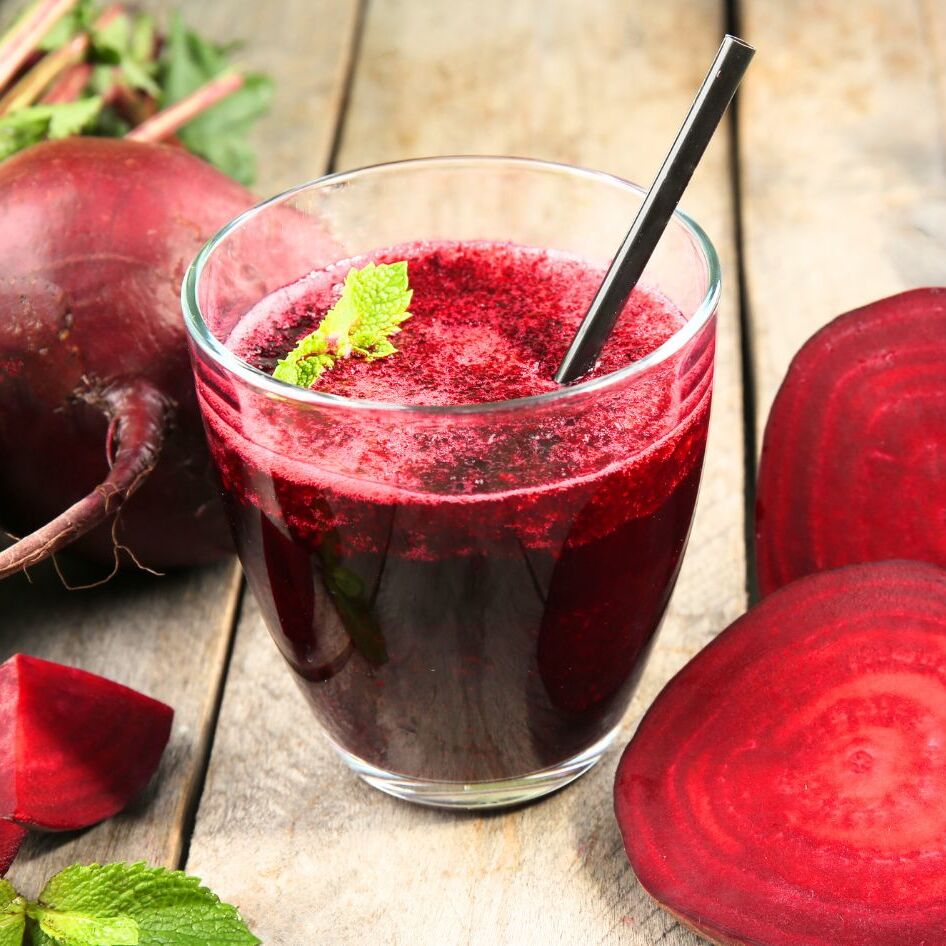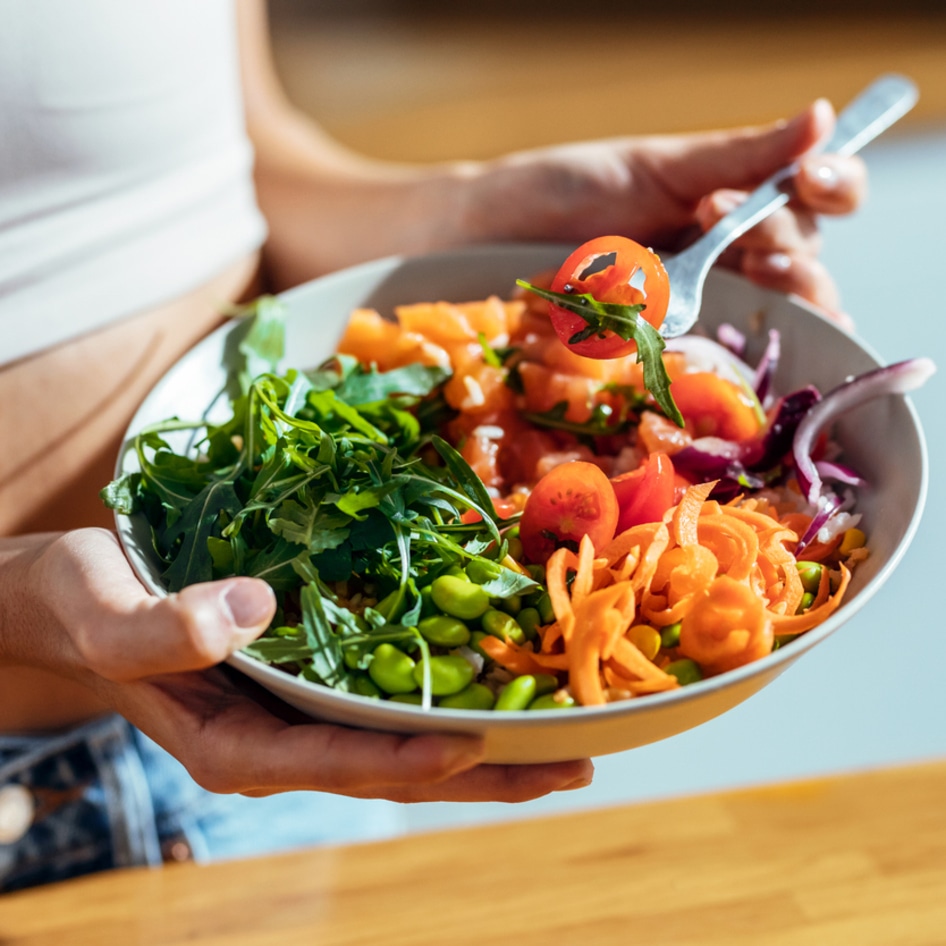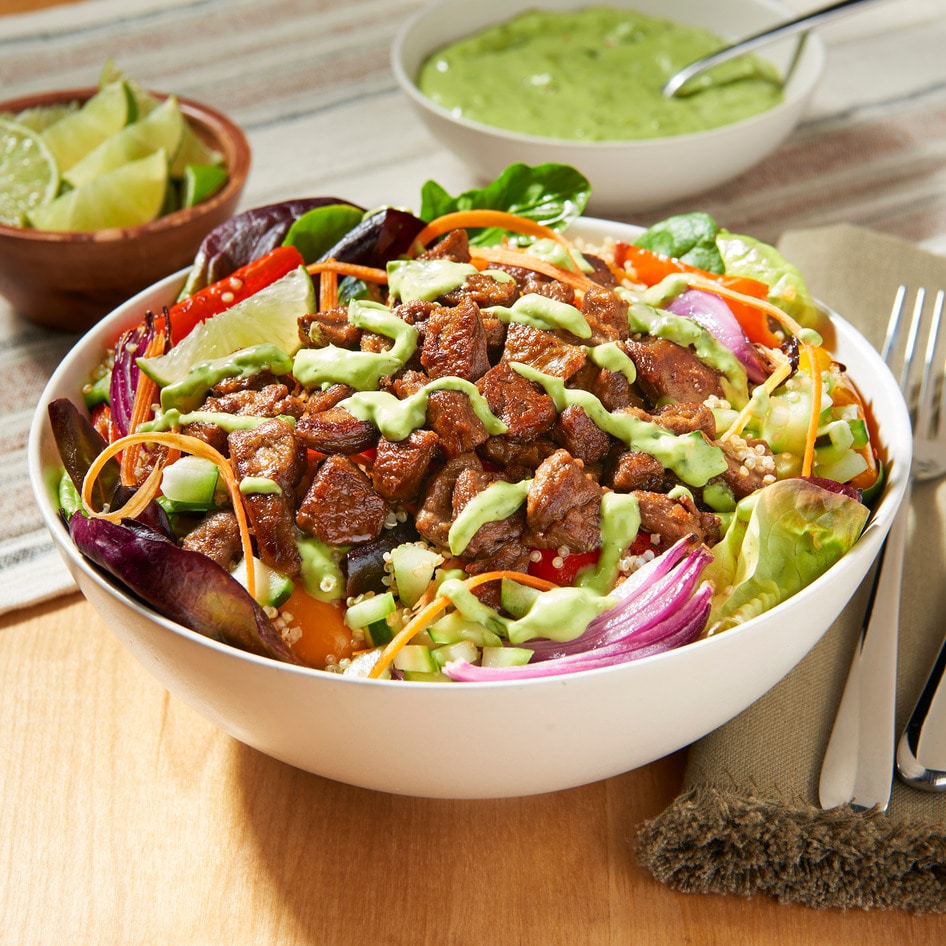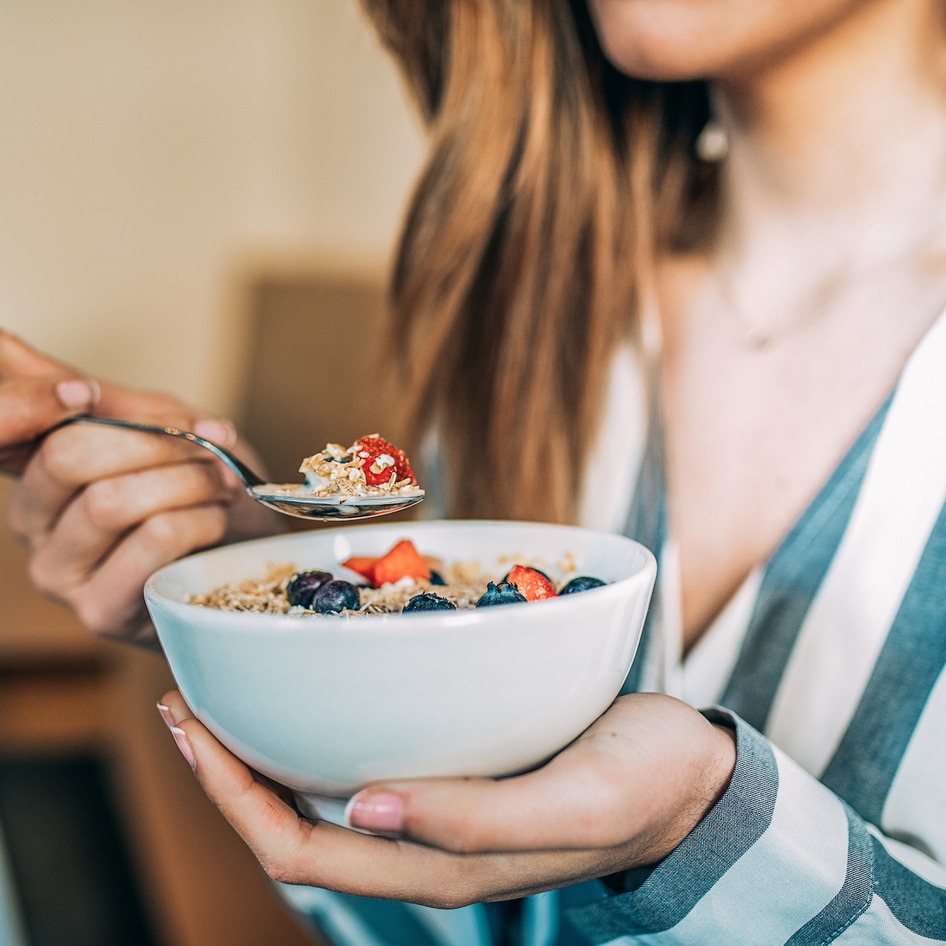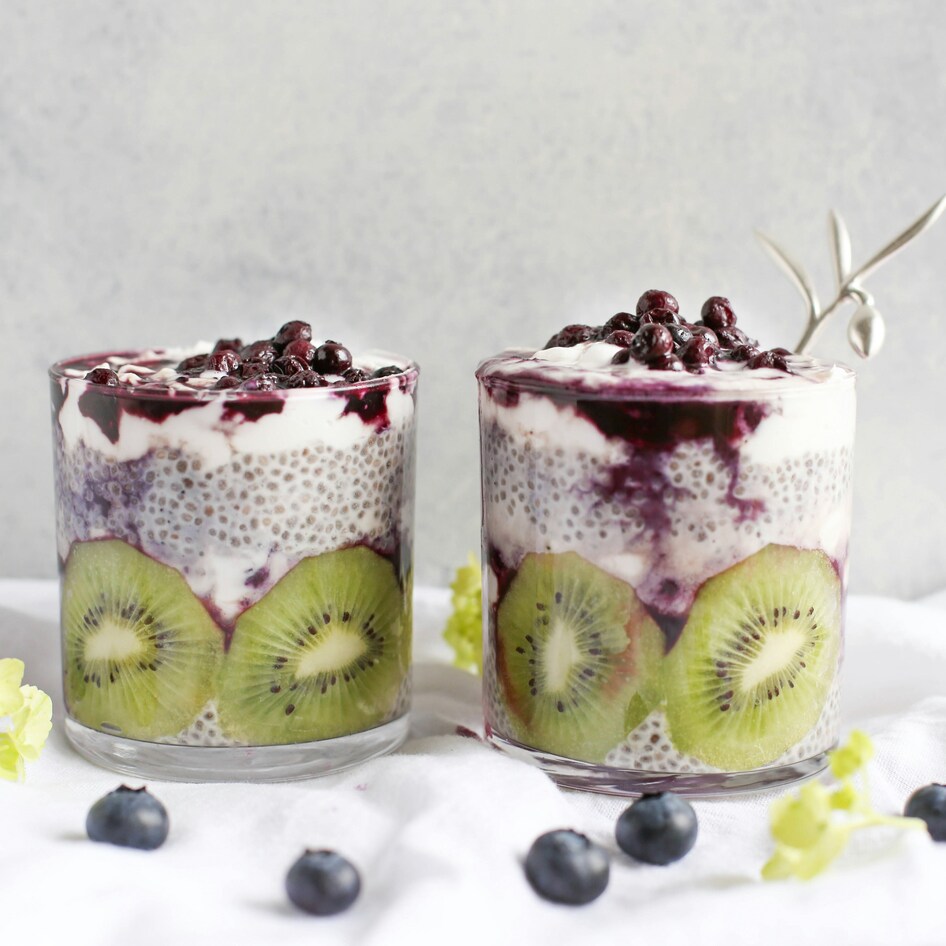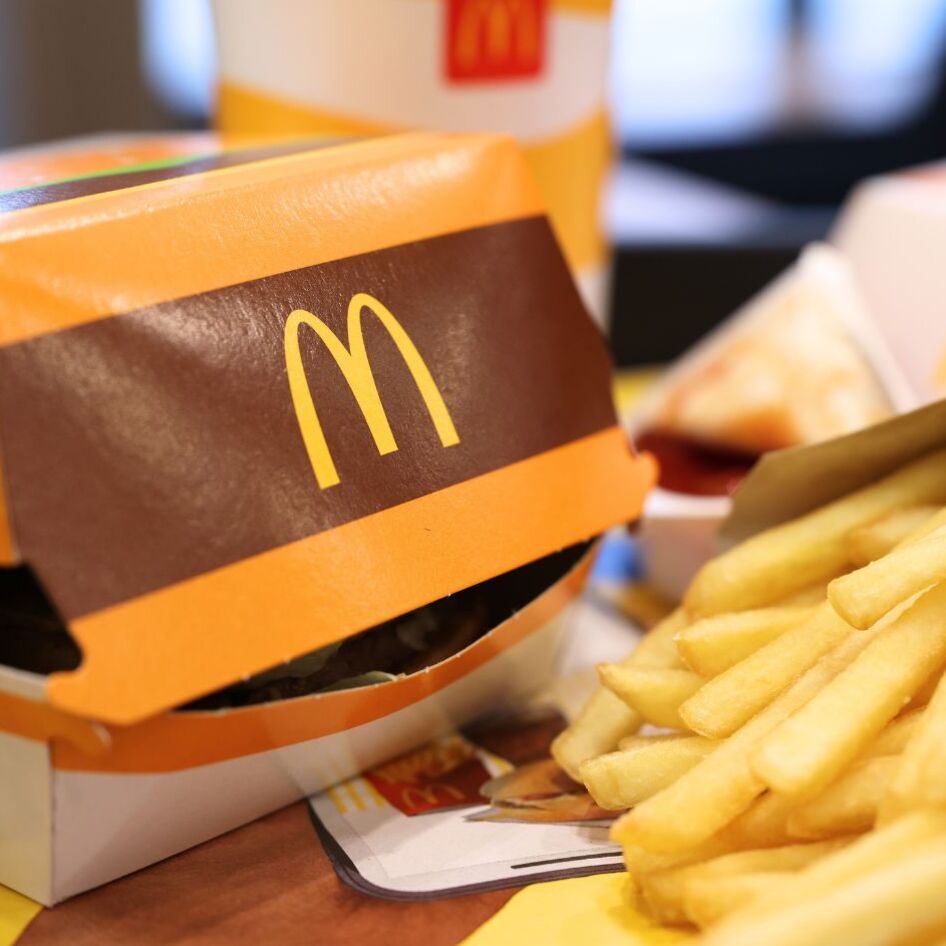On the surface, a salad bowl and the science of erections may not seem like natural bedfellows. But increasingly, researchers are drawing hard lines between what’s on our plates and how well our bodies perform—not just in terms of weight, but blood flow, inflammation, and hormonal signals that affect everything from metabolism to sexual function. Recent findings suggest that when it comes to optimizing health below the belt—and above it—whole, plant-based foods may do far more than previously thought.
A clinical trial and a sweeping review of past studies are drawing a throughline from plant-forward eating to better heart health, better sex, and even meaningful weight loss. The thread that connects it all? How our bodies handle inflammation, blood flow, and metabolic stress—things that show up on a scale or in a lab report, but also in daily energy, libido, and long-term health.
The diet that helped people lose 13 pounds without counting calories
In a study published in Frontiers in Nutrition, researchers tracked 62 adults who followed two popular diets—one low-fat and vegan, the other Mediterranean—for 16 weeks each, with a four-week break in between. Everyone kept food logs, which allowed scientists to measure how much acid their diets were creating in the body.
That acid load, as it’s called, tends to go up when we eat a lot of meat, eggs, and dairy. The more acidic our diets, the more inflammation builds up, which can affect everything from blood sugar to body weight. By contrast, foods like leafy greens, lentils, berries, and grains help the body stay more alkaline—and in this study, people who ate a plant-based diet had a significant drop in that acid load.
 Getty
Getty
“Eating acid-producing foods like meat, eggs, and dairy can increase the dietary acid load, or the amount of acids consumed, causing inflammation linked to weight gain,” Hana Kahleova, MD, PhD director of clinical research at the Physicians Committee for Responsible Medicine and lead author of the study, said in a statement. “But replacing animal products with plant-based foods like leafy greens, berries, and legumes can help promote weight loss and create a healthy gut microbiome.”
Participants on the vegan diet lost an average of 13 pounds over the 16 weeks. Meanwhile, those on the Mediterranean diet—though still widely considered healthy—saw no meaningful change in their weight. The vegan group’s drop in dietary acid load was linked to the weight loss even when calories were taken out of the equation, suggesting something deeper was at work.
BECOME A VEGNEWS VIP: Get exclusive product deals, freebies, and perks galore!
That “something” may be how alkaline foods influence metabolism and inflammation. Researchers noted that the top acid-reducing foods were ones you’d expect to find in a well-stocked produce drawer: kale, spinach, cabbage, carrots, berries, and beans. These not only keep the body in a more balanced state, but also promote a healthier gut—key to everything from hormone regulation to immune function.
Blood flow, erections, and the case for whole foods
While one study focused on weight, a second report zoomed in on a different but related issue: blood flow and erectile function. In a comprehensive review published in The Journal of Nutrition, researcher Mariana del Carmen Fernández-Fígares Jiménez from the University of Granada explored how a plant-based diet could support sexual health—specifically, by preventing or improving erectile dysfunction (ED).
ED affects millions of men around the world and is expected to rise sharply in the coming years. Though often blamed on aging, the condition is frequently linked to poor circulation. Since the blood vessels in the penis are smaller than those around the heart, they tend to show damage earlier, making ED an early red flag for cardiovascular disease.

The review found that diets centered on whole plant foods—think brown rice instead of white, or fresh fruit instead of juice—can improve blood vessel function and help the body make more nitric oxide, a key chemical that relaxes blood vessels and allows for proper blood flow.
A range of foods support this process: leafy greens and beets are rich in natural nitrates; nuts and seeds offer amino acids like L-arginine; watermelon contains L-citrulline; and fruits, veggies, and even cocoa deliver polyphenols. All of these help increase nitric oxide levels, reduce inflammation, and improve circulation.
On the flip side, many animal-based or heavily processed foods work against this system. High-fat meat and dairy raise cholesterol and oxidative stress, both of which restrict blood flow. Grilled or processed meats are high in compounds called AGEs—advanced glycation end products—that make blood vessels stiffer and more prone to damage. And gut-derived compounds like TMAO, produced when we eat red meat or eggs, are now linked to reduced blood vessel flexibility.
The review also pointed out that a typical plant-based diet lowers the intake of AGEs by more than 75 percent. It helps stabilize blood sugar, lowers LDL cholesterol, and reduces the types of inflammation that quietly chip away at circulation and cardiovascular performance.
The everyday nutrients that make a difference
Beneath the technical terms is a surprisingly intuitive takeaway: eating more whole plants supports the natural systems that keep the body running well. Many of the nutrients that help with weight and blood flow are the same ones already recommended for general health. B vitamins, for example, help reduce homocysteine, an amino acid linked to blood vessel damage. Folate and B6 are easy to get from greens and beans. The only supplement strongly encouraged in a fully plant-based diet is B12, which is not naturally found in plants.
Salt also plays a role. A typical Western diet—whether omnivore or vegan—can be high in sodium, especially from processed foods. But a whole-foods diet that relies on fresh vegetables, legumes, and grains is naturally lower in salt and helps keep arteries flexible by reducing vasoconstrictors like endothelin-1.
 Canva
Canva
Together, these shifts build a nutritional foundation that not only helps manage weight and reduce disease risk, but also improves day-to-day energy and physical performance. Even more telling: while there’s still a need for formal trials on vegan diets and ED specifically, the evidence pointing to a strong connection between vascular health and food choices continues to grow.
And as these new findings show, if health really does start in the kitchen, a fridge full of beans, berries, and broccoli might be one of the best investments a person can make.
For more plant-based stories like this, read:
JUMP TO ... Latest News | Recipes | Guides | Health | Subscribe

